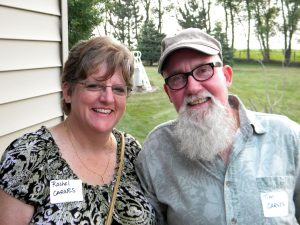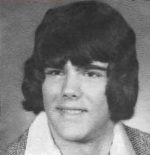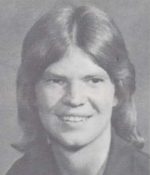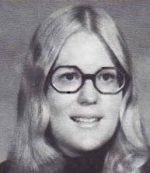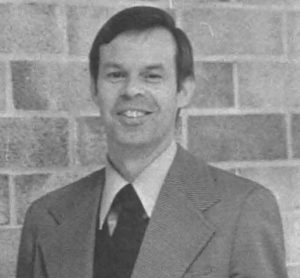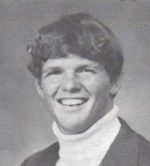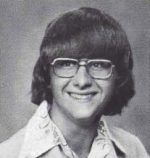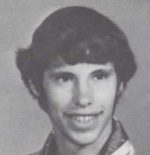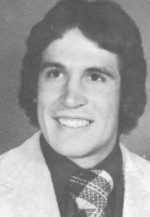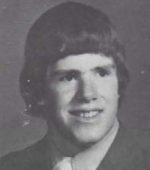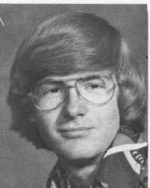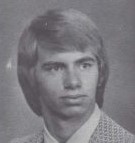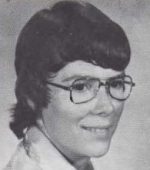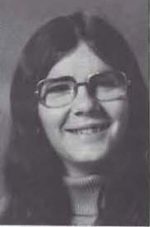I was one of those fortunate kids to whom everything came easily, all the way through school; tail end of the bell curve, blew out standardized tests, skipped a grade or two while they tried to challenge me (we had many good teachers in that system). Until I got to 11th grade chemistry. Doing my usual show up for class, take notes, respectful and attentive, on cruise control. When it came to fall midterms, I got a “C”. What??? I went in to see the instructor and ask him how he could justify that given my scores, which were comparable to the best in the class. Arnold Steintjes was probably in his mid sixties then, crusty Northern European immigrant with still a trace of a homeland accent, gruff and mean. A combination legend as a hard grader, very sarcastic, and a figure of fun to the cruel kids because he had been crippled with polio long before any of us were born and used steel crutches to lever himself in and out of the classroom every day. He made a production of it; wouldn’t enter until the kids were seated and quiet, and we all had to make that painful, slow effort with him as he went from his office at the side to the lecturn up front. He always seemed very angry, and many of us simply endured our hour with him every day, though for some his was their favorite class. (Obviously my perspective on this has changed over the years;
trying to remember how it felt back then.)
So, anyway, I went to ask him about my grade. He offered me the opportunity to do extra credit to raise it. I asked why I had to do extra credit to earn a grade he was giving others. And he said, “Because you don’t learn. You don’t try. I see no growth in you, and that is the point of my class; to challenge you, to teach you not the answers, but how to ask the questions yourself, how to study a subject for its relationship to the world, not just to take tests.” I was insulted. I argued with him politely for a few minutes about his double standard (imagine any of this in public school today; this was 1974), but he was adamant. And you did not argue with teachers in that school system, publicly or privately. So I grudgingly gave in and agreed to come in once a week for extra time with him; I was planning to be a doctor, was already getting scholarship offers, and couldn’t afford the low grade. (What a master manipulator, huh? My Mr. Miyagi, and I didn’t know it.)
So once a week I showed up after school to spend an hour with him in his little glass office. One on one, he was still gruff and sarcastic, but it was magnified like a laser because I was the only one in there. I learned basic differential equations, molecular calculations, a dozen other things that were completely new to me. Everything was worked on a slide rule (calculators were just being introduced) or pencil and paper. One subject led to another. And it all felt very punishing and frustrating. I managed to get my grade up to a “B” for that semester, but was still dissatisfied with it; all I could see was my career choice going to waste with the GPA hit.
The second semester, he was often absent for illness, but still in control of the class grades and syllabus; his substitute, Mrs. Moon, was Eastern European with an almost unintelligible accent and a plodding way of teaching, but very knowledgable. We continued our once-a-weeks as he could; I was not excused for any reason, but if he wasn’t there, somehow there was always a handwritten lesson prepared for me to work through. (Computers were mainframes miles away on which I was learning BASIC; larger class lessons were on mimeographed pages – loved the smell of the ink. Smelling it now in remembering all this.)
One day I reported for my time, and knew he should be there because I’d been in class earlier that day, but didn’t see him through the glass until I was almost at the door. He was down behind the desk, writhing with his face all screwed up, his steel crutches thrown out of reach. He’d fallen, I think hit his head on the way down, and was mostly helpless. He was such an intimidating figure to me that, while his infirmity was always a part of his legend, he seemed human and fallible for the first time. I went and got him sitting up (first time I’d ever touched him, except when he rapped me across the knuckles with his slide rule for stupidity a few times) on the floor and grabbed the cup of water from the desk, and held him while he got his bearings. He was completely embarassed, as was I. He refused to allow anybody from the front office to come or call the school nurse, so we just sat together for a time, then we got him to his feet and back in his desk chair and he dismissed me from our lesson.
That was the last one. He taught a few more days that semester, but was mostly out ill. They forcibly retired him though I heard he wanted to come back. I was scheduled to take 12th grade physics from him the next year and was very disappointed (starting to figure out by then, in my dim, self-centered mind, what a gift he had given me and at what cost). You didn’t communicate with teachers outside of class back then; the few who tried to establish any social ties with students were quickly shut down, so I mostly lost track of him. However, his wife was an office manager in the front office, so I checked with her every few weeks to see how he was doing. She would say something bright and meaningless, and sometimes I could tell it was a lie.
I didn’t attend my graduation because I was opening a seasonal bookstore out of town, so I don’t know if he was there. When we got home, there was a little box with a note on it from him on the front steps. It was a black and white cotton scarf with polka dots, and a congratulations on my graduation; the only graduation gift I received other than a Timex from my parents. I still have it, and make sure to wear it when I remember to thank him for teaching me how to think and how to study. I can’t imagine what he must have endured to keep teaching, between mocking or indifferent students, the pain, the need to show up every day and slog through the routine, but I do know I was not the only student he inspired.
I’ve never written about this before, but I’ve often reflected on his generosity and the magnitude of the change he made in my life. He didn’t have to do any of that. But in telling this, I see that maybe I got to give him a gift as well; maybe I was one of the few that validates a teacher’s existence and rewards their efforts, and I’ve just never looked at it from his perspective before. I can’t ask him, because he’s been gone for decades, but I’d like to think it’s so. No, I didn’t get a final “A” from him. I earned it. And it was the hardest, most worthwhile grade ever.



